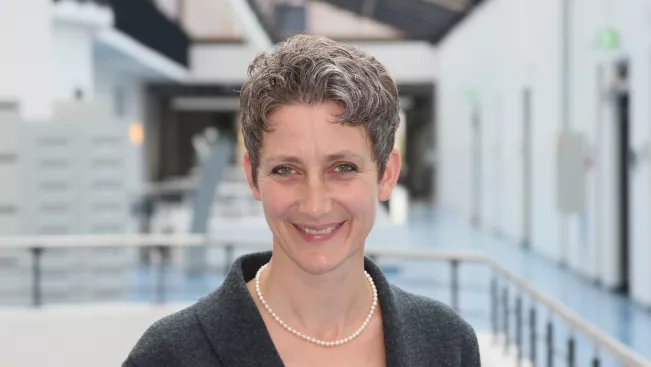Communications and Marketing
Prof. Meilinger appointed to ACACIA advisory board
Based on the results of the project, policies and regulations for a more climate-friendly aviation system can be developed. Eleven European partners are working together on the ACACIA project which is scheduled to run from 2021 to 2023 under the leadership of the German Aerospace Center (DLR).

Several hundred airlines transport goods and people across the globe daily. Aviation is dependent on fossil fuels, making it an abundant source of CO2 emissions. However, CO2 only accounts for part of aviation’s climate impact: air traffic triggers a wide range of non-CO2 effects, both short-lived and long-lasting, at opposite ends of the spectrum – i.e. they can cause both cooling and warming. These include changes in ozone and methane from NOx emissions, contrails and indirect effects of aerosols on clouds.
However, these non-CO2 impacts are also subject to a significantly more uncertainty than the effects of CO2. To understand the role they play and potential trade-offs and to provide robust recommendations for decision-makers, this uncertainty needs to be reduced.
Basis for climate impact assessment
This is the overriding objective of ACACIA. The project brings together experts from a broad range of disciplines – from laboratory experiments to global modelling right through to stakeholder dialogue – to provide the knowledge basis and strategic guidance for implementing mitigation options in the future. In particular, the project will focus on improving the scientific understanding of the impacts surrounded by the highest degree of uncertainty – the indirect effects of aerosols – as well as on providing an updated climate impact assessment and exploring how non-CO2 effects may be incorporated into international climate policy strategies. After all, apart from reducing fuel consumption, factoring in non-CO2 effects may provide an additional boost for aviation in terms of helping to achieve the aims of the Paris Agreement.
Profile
Professor Stefanie Meilinger works at the International Centre for Sustainable Development (IZNE) at Hochschule Bonn-Rhein-Sieg University of Applied Sciences (H-BRS). She was appointed to the Department of Electrical Engineering, Mechanical Engineering and Technical Journalism (EMT) in 2013, where she specialises in sustainable technologies with a focus on renewable energy systems and energy efficiency.
Aside from sustainable energy systems, her research areas also include sustainable mobility and the sustainability of technological transformation processes. Visible from a long distance away, the roof of the H-BRS building on the Sankt Augustin site features installations for measuring and observing weather- and climate-relevant influences such as those caused by aerosols, radiation, wind, sun and clouds.
Links
Further links